13 September, 2018 By: Wendy Caccetta
When weekend triathlete Matt Whelan broke his neck in three places, his club mates rallied round to get him back in the race.
January 8, 2017 was like any other idyllic summer Sunday in Perth.
Matt Whelan and his wife Fran Lang had spent the day boating on the Swan River with Fran’s parents who were on holiday from the UK and another couple.
They’d soaked up the sunshine cruising from Deep Water Point in Mount Pleasant up towards Bassendean, admired the new stadium and lunched in East Perth.
Whelan, a weekend triathlete, was as fit as he’d ever been and chasing a spot in the ironman world championships. He’d raced three half ironman events the previous year, including his first international half ironman race in South Korea in September and the Busselton half marathon back home in December.
But as that Sunday came to a close, his life changed in an instant. Whelan dived in at Deep Water Point to help secure the boat to the shore.
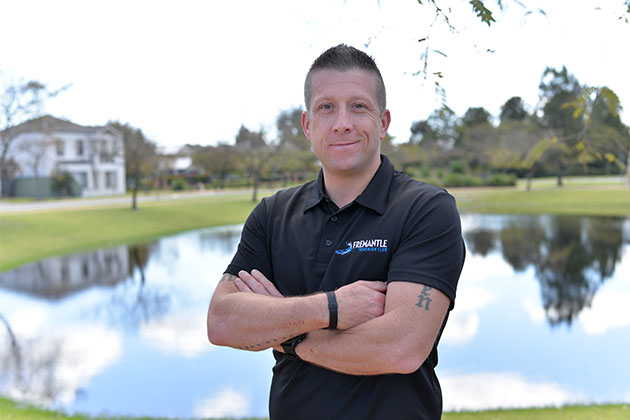
“The water was as dark as this table top,” he says, pointing to a black counter. “I didn’t have any concerns about the depth of the water, especially given that the boat was moving in towards it, and I dived off.”
But the water was deceptive.
The 41-year-old recalls feeling his hands and then his head collide with something and he momentarily blacked out. Coming to, he feared the worst.
“I remember looking up through the water. I could see the sun coming down towards me and I couldn’t breathe. I went to move my arms, but nothing would move. I was paralysed at that point. I couldn’t move anything and I thought ‘this is really bad’.”
What happened next is a blur. Whelan remembers being on his feet, but isn’t sure if he stood up himself or if his wife and the others jumped in and helped him.
They moved him to the shore and tried to keep him still. When the pain became so bad it was apparent he was suffering from more than concussion, they called an ambulance.
Luckily for Whelan the feeling quickly returned to his limbs, but at Royal Perth Hospital he received bad news.
“I was wiggling my feet around and moving and crossing my legs and a nurse came in and shouted ‘You’ve broken your neck in three places. Stop moving’. And that was how I found out,” he says.
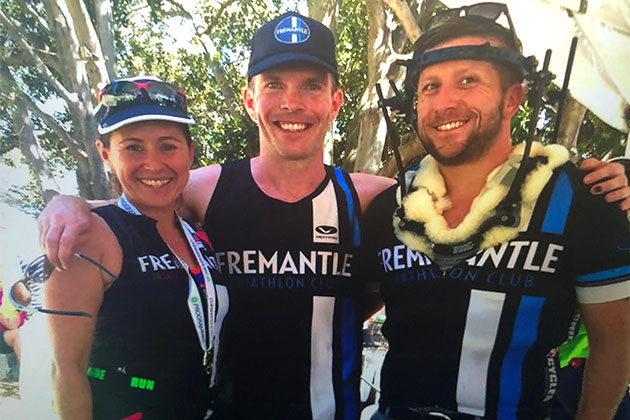
Whelan says any movement could have damaged his spinal cord further. He spent six days in hospital immobilised and was then fitted with a halo brace — a medieval-looking metal ring that wraps around the head, is screwed into the skull and attaches to a vest around the chest to keep the head still while the spine heals.
He could then go home.
Whelan says his new reality of “Netflix and pills” was sobering.
Even harder, he was notified at that time that he was in the top one per cent of triathletes in the world for his age and the top 20 by age in Australia and had been awarded Gold All World Athlete status.
However his fellow triathletes and members at Fremantle Triathlon Club (FTC) rallied around Whelan, buoying his spirits by getting him involved in training sessions and events, even though he couldn’t physically train.
They even put him to work, tasking him with planning and compering the end-of-year award ceremony.
“They arranged for people to come to my house and pick me up, take me to training sessions and for me to be there for the novices, to give them encouragement and talk to them about things I’d come across in triathlon, just to generally be around the group and feel their positivity,” he says.
A grateful Whelan says the support of the FTC gave him focus.
“They dragged me through it, I would say,” he says.
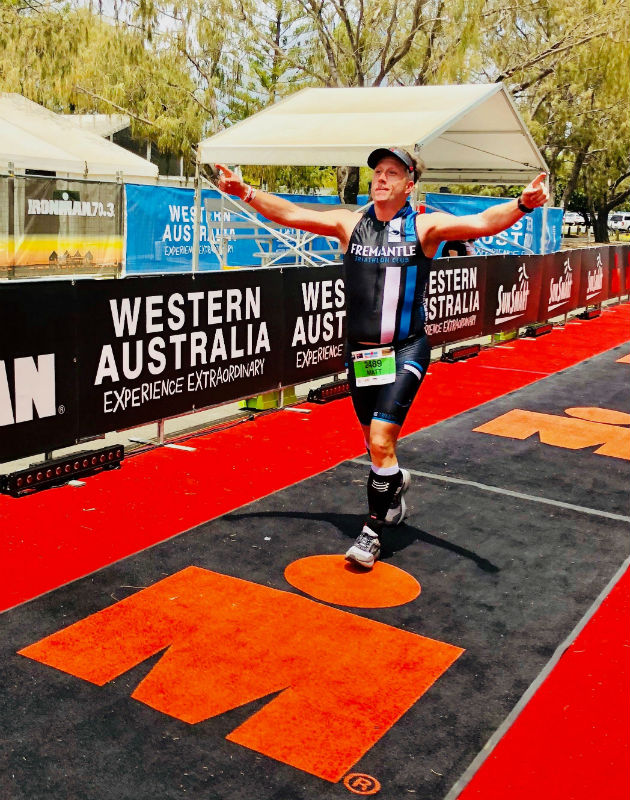
Enjoying this article?
Sign up to our monthly enews
Whelan set himself a goal of returning to training and work as soon as possible. The halo was removed in late March last year. Two months later he went for his first swim and after five months he was doing an easy run-walk.
In December he was back lining up for the Busselton half ironman though he admits the 1.9km swim (which was cancelled due to a shark sighting), 90.1km cycle and 21.1km run was a bit ambitious.
More than a year on, he is planning his first triathlon season back this summer. He still has problems with his neck and shoulders, but knows how lucky his recovery has been.
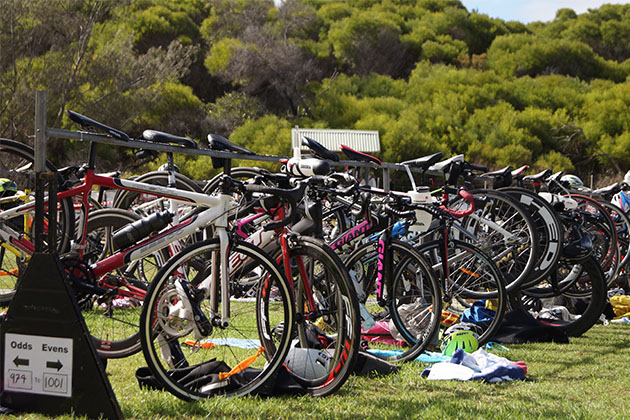
“My extended family is in the UK — to be injured like that and to have the kind of the support from people like the FTV proves to me that family doesn’t necessarily have to be blood,” he says.
In recognising the community spirit shown by the FTC, it was awarded the RAC Insurance Beyond Sport Award John Gilmour Medal at the RAC WA Sports Star Awards in February 2018, with Whelan accepting the prize on the FTC's behalf.
The medal was named after runner John Gilmour whose athletics career was interrupted by World War II.
Gilmour spent three years in prisoner-of-war camps in Singapore and Japan before returning home a blind soldier, but it didn’t stop him going on to set 114 world age records from 1972 to 1991.
Two years ago, at the age of 97, he was the oldest competitor at the World Masters Athletics Championships in Perth.
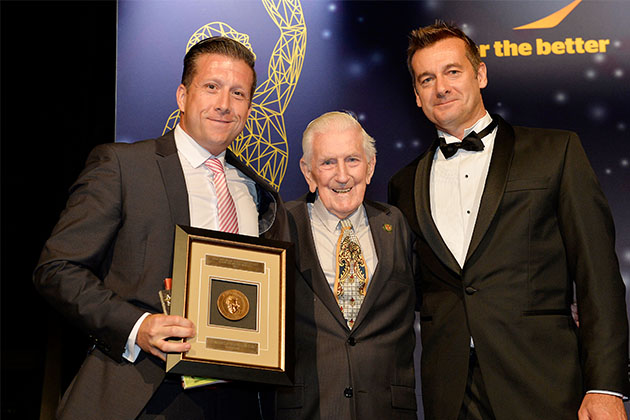
Triathlon WA executive director Peter Minchin, who nominated the FTC for the award, says they demonstrated the best qualities of the triathlon community.
Whelan says the award was a big honour.
“To read John Gilmour’s story and know where he’s come from, for the club to be linked with a person as esteemed as that, is an honourable thing,” he says.
Images supplied to RAC by Clayton Jauncey, the Fremantle Triathlon Club, and Shutterstock
Enjoy this story? Get more of the same delivered to your inbox. Sign up to For the Better eNews.
We are proud to sponsor the RAC Sports Star Awards.
For the first time, RAC members were be able to nominate a club or individual for the RAC Insurance Beyond Sport Award and RAC Insurance Community Club of the Year Award.
Nominations closed on Friday 9 November. Winners will be announced at the awards ceremony on 7 February, 2019 at Optus Stadium.
RAC Sports Star Awards
